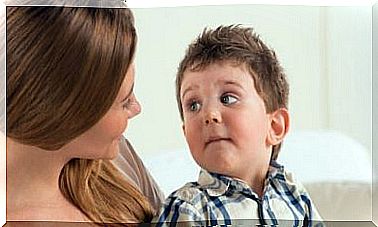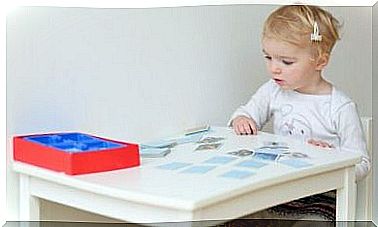My Child Is Not Happy: How Can I Help?
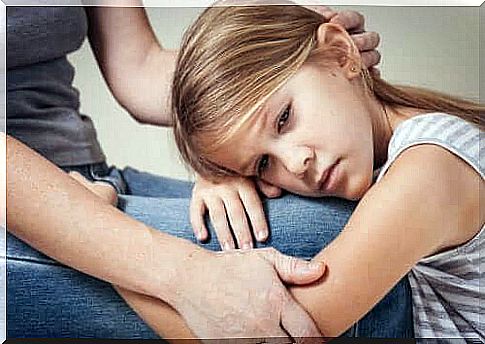
The goal of all parents is to ensure their children’s health and happiness. Unfortunately, neither life nor children come with an instruction manual and, despite doing our best, often the results are not what we expected. If the words that come to your mind right now are: “my son is not happy and I don’t know how to help him” , read carefully the tips that we will propose below.
Where does happiness come from?
We often wonder why some children are happier than others. Why for some people it’s easy to see the good in life while for others it’s so hard. From our perspective as parents, we can be distressed if we notice that our child is not happy.
The good news is that happiness is not something determined and immutable, but something that we have the capacity to develop. 50% of our happiness comes from genetic factors, 10% is influenced by our life circumstances and the remaining 40% represents our attitude, the thought patterns we’ve learned.
Therefore, parents have the ability to convey to the little ones appropriate cognitive and emotional patterns to help them get through life in a fluid and positive way. In addition, we can also ensure that external circumstances are as favorable as possible.
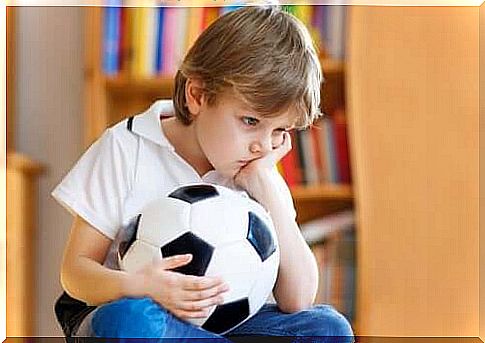
I think my son is not happy
As parents, we always want to provide our children with a full, carefree and safe childhood. We hope to transmit the ability to appreciate and be happy with the simple things in life.
However, sometimes doubts about our children’s well-being can plague us. However, first we need to try to identify if the child is unhappy or if he is simply a human being with his good and bad moments.
The main characteristics of a happy child come down to their ability to be interested in and appreciate people, activities and events in life. In addition, these children also show a series of signs that we should take into account:
- They are cheerful and active. They laugh, smile and convey their joy to others.
- They are sociable, have lots of friends and like to build relationships with other children.
- They are grateful, valuing and appreciating the positive events and gestures of others.
- They have a positive worldview and use similarly positive language. They manage to have confidence in the future and generally don’t leave dramatic situations.
- They are motivated and excited to start or carry out activities. They have a hobby or a skill that they are very fond of.
- They have self-confidence. They are autonomous, do not have many fears, and often express themselves aggressively.
How can I help if my child is not happy?
unconditionally love
An indispensable requirement for being happy is getting love and security from your main source of attachment. So, love and accept your child the way he is, expressing your love for him.
Also, listen carefully and talk to him often. In this way, the bond between you will be strengthened and you will be able to detect mood swings or minor concerns to help you resolve them.
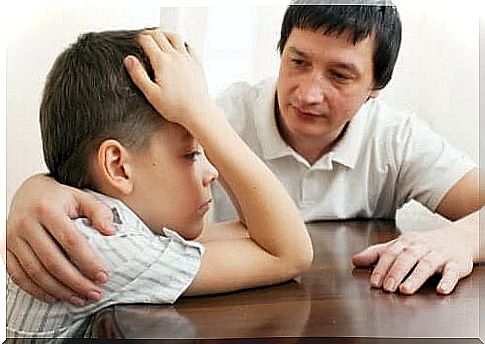
Set healthy limits
While we believe that setting rules or saying ‘no’ can make our children unhappy, in fact, the opposite is true.
The little ones need clear and coherent boundaries. They are your guide so they know what to expect from life and what life expects of them. This provides security and teaches you to tolerate frustration.
Promote self-esteem and autonomy
Certainly, self-love is one of the most important values for someone to be happy. So, strive to create a healthy self-esteem in your child that makes him feel capable and valuable.
Help him to be independent according to his means by entrusting him with small responsibilities and letting him carry them out. The feeling of accomplishment will forge a very positive self-concept in him.
Promote a positive attitude
Try to instill positive, optimistic thinking in your children. Convey the value of being kind and appreciative, of valuing and appreciating all that is good around us.
Help them to put problems into perspective and look for solutions rather than getting stuck in them. But for that, the best thing you can do is to set an example through your own positive attitude.




